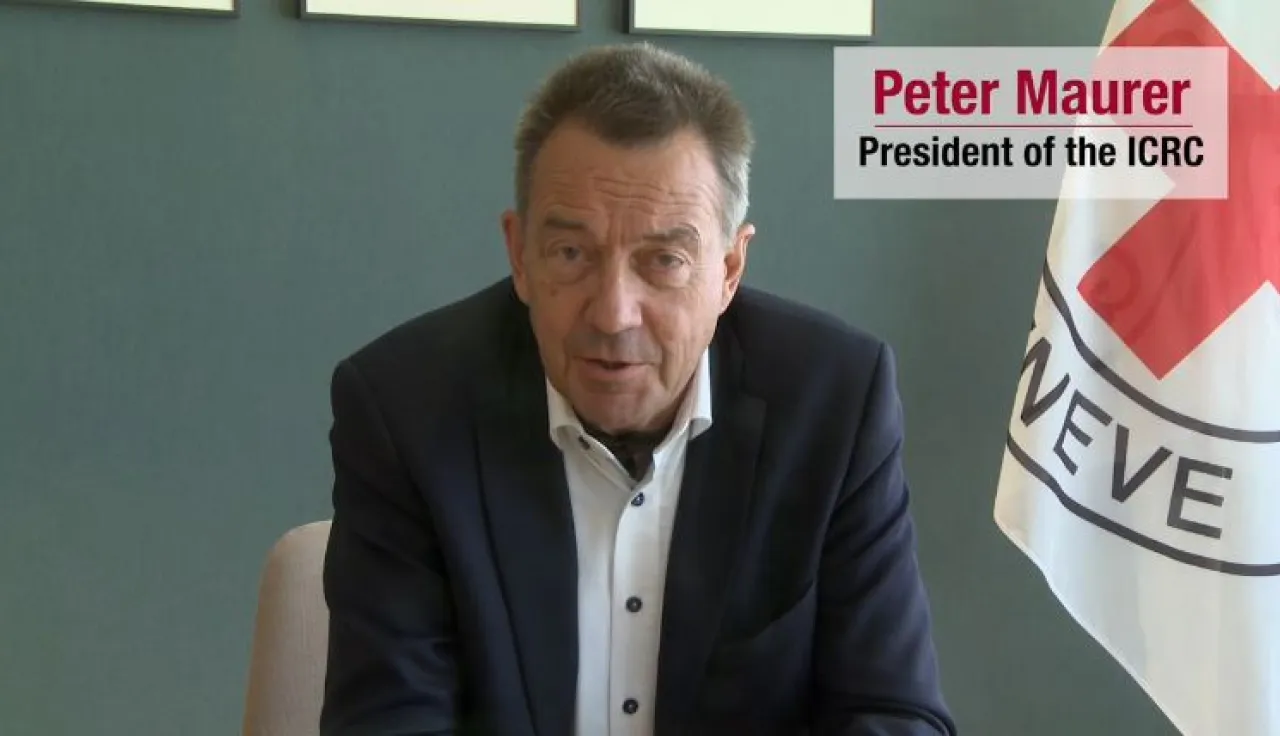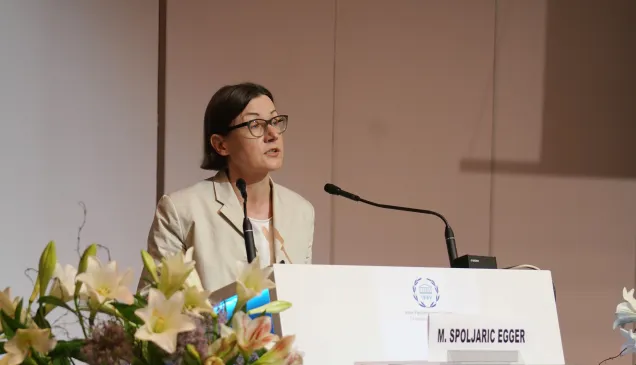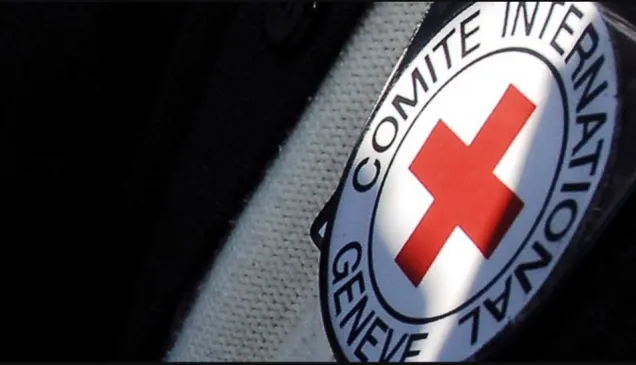Dear State Councilor Wang Yong,
Dear Mr. Huang Ming, the General Secretary and Minister, Ministry of Emergency Management.
Dear Ministers,
Dear Representatives from UN organizations, regional organizations and countries,
It is a great honor for me to address the Belt and Road Ministerial Forum for International Cooperation in Disaster Risk Reduction and Emergency Management.
I commend the ambitious project of this Forum to harness the efforts of stakeholders to better anticipate future disasters and respond to them more effectively and sustainably, in a spirit of shared responsibility.
As referenced in the "Beijing declaration", Covid-19 and the climate crisis have deepened fragility and increased suffering of communities including through the loss of lives and livelihoods, displacement, environmental, economic, social and material damages. They have been, and are still, a testing ground for the global community.
The ICRC operates in more than 60 countries along the "Belt and Road", in which people may be exposed to the combined consequences of global shocks. It is a first-hand witness that while disasters and pandemics strike indiscriminately across and beyond borders, people living in conflict and fragile settings are the most vulnerable and the least able to cope.
Our long-lasting presence in these contexts and proximity to people affected allow us to hear their voice and understand their needs. These needs often go beyond short-term relief and call for enhanced preparedness and response.
The ICRC is adapting its action to tackle urgent humanitarian needs as well as to build the resilience of affected people to future shocks. It is committed to better inclusion of affected communities in the design and implementation of the response. In addition, it has embraced a systemic approach, aiming at reinforcing the resilience of essential services such as health, water, habitat and food. In that sense, we also ask for development, environmental and climate finance to be channeled more prominently towards fragile contexts.
We recognize the importance to design preparedness and response mechanisms that can reach out to the most vulnerable segments of societies, those that are the hardest to reach. The increased use of digital means, both by humanitarian organizations and individuals, is a key opportunity to make humanitarian action more effective and efficient and to better reach affected populations, leaving "no one behind".
The ICRC is part of the Red Cross Red Crescent Movement which has a unique and comprehensive preparedness and response capacity. Together with the International Federation of the Red Cross and Red Crescent, National Societies and their extensive network of volunteers, the ICRC can cover the lifecycle of a crisis. We have demonstrated our ability to scale-up and provide a response to the unprecedented humanitarian needs in major and complex crises, such as Syria, Myanmar and Afghanistan and in response to Covid-19.
As a conclusion, I would like to call on three elements to integrate a humanitarian dimension in Belt and Road initiatives:
- The magnitude of needs in fragile environments requires more collaboration and joint action – which is precisely the aim of the forum. As the ICRC, we have always promoted an approach made of mutual learning and practical cooperation. We are ready to share our expertise of fragile environments and eager to learn from others.
- We must work on reinforcing systems, while constantly bringing in the "human factor". Preparedness and response must be truly people-centered, listening to those affected and enabling them to co-design preparedness and response strategies. No one should be left behind – the needs of the hardest to reach and the most vulnerable must be met.
- Supporting and financing humanitarian action beyond short-term emergency relief is a strategic investment to save lives, strengthen resilience and reduce the risk of development reversals during acute and protracted crises.
The ICRC is committed to contribute to a more efficient and predictable multi stakeholder's international cooperation. "Upholding the people-centered development philosophy", as stated in the preamble of today's Beijing declaration, is a powerful compass for action.
Esteemed representatives of states, ICRC teams in Belt and Road countries are ready to engage with your agencies and with other stakeholders in knowledge sharing, joint development of capacities, policy development and practical trainings, for the protection of the well-being and dignity of the people and communities.
Thank you



